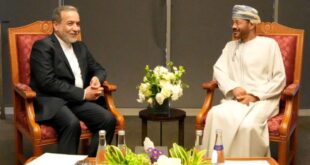 TEHRAN (FNA)- American sanctions on Iran’s financial sector have not hampered business for Bank Mellat, one of Iran’s major state-owned banks, its managing director said Friday.
TEHRAN (FNA)- American sanctions on Iran’s financial sector have not hampered business for Bank Mellat, one of Iran’s major state-owned banks, its managing director said Friday.
Speaking to the Financial Times in Tehran, Ali Divandari said that while US sanctions “initially had a negative impact on the bank’s reputation and created troubles … in practice there was no halt to our operations.”
“We are now working with important international commercial and correspondent banks on a daily basis … including European, Asian and African ones,” he added, declining to name any of the banks or their home countries.
Divandari noted that the number of banks doing business with Bank Mellat had increased since the US sanctions because major international financial institutions that were doing business with it were replaced by a larger number of smaller banks.
“It will be troublesome if Europe imposes unilateral sanctions on Iran’s banks, but we will be able to again replace the outgoing banks,” he added.
The United States in October imposed sanctions against three of Iran’s largest banks – including Mellat – accusing them of financing nuclear weapons proliferation.
Those sanctions forbid any financial transactions between a US citizen or private organization. All assets under US jurisdiction of those targeted were immediately frozen.
Washington and its Western allies accuse Iran of trying to develop nuclear weapons under the cover of a civilian nuclear program, while they have never presented any corroborative document to substantiate their allegations. Iran denies the charges and insists that its nuclear program is for peaceful purposes only.
Tehran stresses that the country has always pursued a civilian path to provide power to the growing number of Iranian population, whose fossil fuel would eventually run dry.
Despite the rules enshrined in the Non-Proliferation Treaty (NPT) entitling every member state, including Iran, to the right of uranium enrichment, Tehran is now under three rounds of UN Security Council sanctions for turning down West’s illegitimate calls to give up its right of uranium enrichment.
Tehran has dismisses West’s demands as politically tainted and illogical, stressing that sanctions and pressures merely consolidate Iranians’ national resolve to continue the path.
Iran insists that it should continue enriching uranium because it needs to provide fuel to a 300-megawatt light-water reactor it is building in the southwestern town of Darkhoveyn as well as its first nuclear power plant in the southern port city of Bushehr.
Tehran says that it considers its nuclear case closed as it has come clean of IAEA’s questions and suspicions about its past nuclear activities.
Yet, the United States has remained at loggerheads with Iran over the independent and home-grown nature of Tehran’s nuclear technology, which gives the Islamic Republic the potential to turn into a world power and a role model for other third-world countries. Washington has laid much pressure on Iran to make it give up the most sensitive and advanced part of the technology, which is uranium enrichment, a process used for producing nuclear fuel for power plants.
Washington’s push for additional UN penalties contradicts the report by 16 US intelligence bodies that endorsed the civilian nature of Iran’s programs. Following the US National Intelligence Estimate (NIE) and similar reports by the IAEA head – one in November and the other one in February – which praised Iran’s truthfulness about key aspects of its past nuclear activities and announced settlement of outstanding issues with Tehran, any effort to impose further sanctions on Iran seems to be completely irrational.
The February report by the UN nuclear watchdog, the International Atomic Energy Agency, praised Iran’s cooperation in clearing up all of the past questions over its nuclear program, vindicating Iran’s nuclear program and leaving no justification for any new UN sanctions.
The UN nuclear watchdog has also carried out at least 14 surprise inspections of Iran’s nuclear sites so far, but found nothing to support West’s allegations.
Analysts believe that Bush’s attempt to rally international pressure against Iran lost steam due to the growing international vigilance.
US President George W. Bush finished a tour of the Middle East in winter to gain the consensus of his Arab allies to unite against Iran.
But hosting officials of the regional nations dismissed Bush’s allegations, describing Tehran as a good friend of their countries.
Many world nations have called the UN Security Council pressure against Iran unjustified, especially in the wake of recent IAEA reports, stressing that Tehran’s case should be normalized and returned to the UN nuclear watchdog due to the Islamic Republic’s increased cooperation with the agency.
 Eurasia Press & News
Eurasia Press & News



